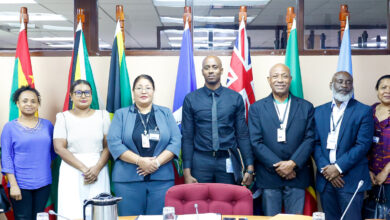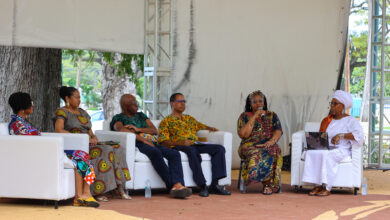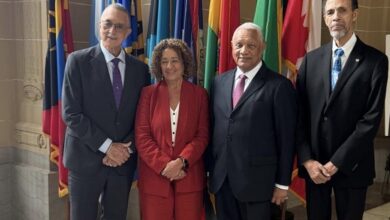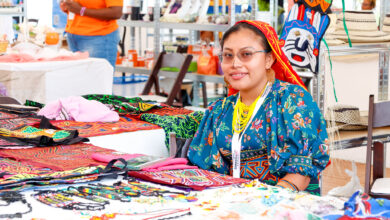(CARICOM Secretariat, Turkeyen, Greater Georgetown, Guyana) After twenty years, the Regional Cultural Committee (RCC) has much to be proud of as an advisory body instrumental in shaping cultural policies, infusing the regional culture programme with new ideas, approaches and attitudes and providing advice to Ministers of Culture on the many pressing issues on the Region’s cultural agenda.
This, according to Dr Hilary Brown, CARICOM Secretariat’s Programme Manager for Culture and Community Development, as she enumerated the achievements of the Committee at the Opening Ceremony of its Twentieth Meeting on Wednesday in Suriname, where Directors of Culture of CARICOM States are meeting for three days, to discuss various policies and programmes affecting the growth and development of culture in the Caribbean.
Among the RCC’s milestone achievements was the development of a regional cultural policy in 1994, which according to Dr Brown still served as a model for the development of national cultural policies in some Member States. She also cited the Committee’s continued advocacy, which she said contributed to greater attention being paid by governments in the region to the need to develop cultural industries in CARICOM. The result of this was the establishment of a Regional Task Force on Cultural Industries, whose primary responsibility is to develop a comprehensive Regional Development Strategy and Action Plan for the Region’s cultural industries.
“The RCC recognizes the tremendous economic value of the creative industries to the sustainable development of small developing states and remains committed to realizing even more benefits for artists and our Region through the development of these dynamic indigenous industries,” she commented.
In addition, Dr Brown noted that the Committee had advocated for, and managed the implementation of the European Union funded CARIFORUM Cultural Centers Programme; the CARICOM Foundation for Art and Culture; and the restructuring of CARIFESTA, including the development of a new governance model and strategic plan.
She was convinced that the RCC would continue to advance ideals of cooperation, and view culture “as central and pivotal, in building diverse, stable, cohesive societies, based on respect for the many cultures and ethnicities that make up our nation states.”
“We see culture as the foundation on which we build our regional cooperation and identity,” she concluded.
The Hon. Olivia Grange, Jamaica’s Minister of Youth, Sports and Culture, expressed her commitment to the task of Champion Minister for Culture in CARICOM, and promised to do her utmost in promoting the culture agenda. She pointed to the ingenuity, creativity and originality of the Caribbean peoples and charged Directors of Culture to approach the agenda with determination, commitment, brashness and boldness.
Minister Grange spoke of the frustrations of the artists in gaining recognition and rewards for their creativity and reminded the Meeting as well as policy makers in general, of their obligation to create an enabling environment for the expression of such creativity.
The Hon. Jong Tjin Fa, acting Minister of Education and Community Development, Suriname, in welcoming Directors of Culture and other culture officials to his country, noted the significant contributions of culture to the Caribbean economy. He perceived culture as the root of development and called for Member States to develop and implement comprehensive cultural policies as a part of their national development agenda.
The three-day meeting which ends on Friday, June 5 will also evaluate the staging of CARIFESTA X which was held in Guyana in August 2008 and plan for the future of the event; review the progress of the Regional Task Force on Cultural Industries; and will assess the RCC’s progress in strengthening cultural co-operation with international organizations, Third States and Latin American countries.





